Counselling is being provided both in educational institutions and increasingly in the workplace. When successful, counselling helps students in their studies and career choices, employees in professional growth and work productivity. The following five books approach counselling from different perspectives.
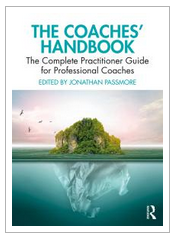 Passmore, J. (2021). The coaches’ handbook: The complete practitioner guide for professional coaches. Routledge. Passmore, J. (2021). The coaches’ handbook: The complete practitioner guide for professional coaches. Routledge.
A comprehensive guide featuring contributions from leading coaching practitioners worldwide. It is divided into seven sections, covering the nature of coaching, its boundaries, and fostering a coaching culture within organizations. The book delves into self-awareness, client understanding, and core coaching skills such as goal setting, active listening, and managing emotions. It presents diverse coaching approaches, from behavioral and solution-focused methods to psychodynamic, positive psychology, and eco-coaching. The later sections address ethics, professional development, and practical tools for enhancing coaching practices and building a successful coaching business. |
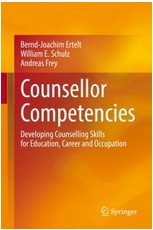 Ertelt, B., Schulz, W. E., & Frey, A. (2022). Counsellor competencies: Developing counselling skills for education, career and occupation. Springer. Ertelt, B., Schulz, W. E., & Frey, A. (2022). Counsellor competencies: Developing counselling skills for education, career and occupation. Springer.
The focus of this book in on application-oriented counselling. The authors introduce several counselling theories and trends, with practical exercises. The authors recognize that conditions and target groups differ in counselling practice. In their mind, counselling competence can and should be developed constantly, in close interaction with other counselling professionals. |
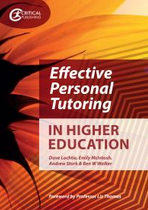 Lochtie, D., McIntosh, E., Stork, A., & Walker, B. (2018). Effective personal tutoring in higher education. Critical Publishing. Lochtie, D., McIntosh, E., Stork, A., & Walker, B. (2018). Effective personal tutoring in higher education. Critical Publishing.
The authors have written this book for all higher education staff involved with student support. They discuss the different models of personal tutoring and draw attention to the similarities between good tutoring and good teaching. Text has been illustrated with real-life scenarios that draw on the authors’ own experiences. reading this book one will gain a better understanding of what it is to be a good personal tutor, and how you will know when you have succeeded. |
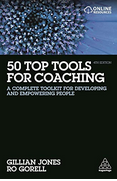 Jones, G., & Gorell, R. (2018). 50 top tools for coaching: A complete toolkit for developing and empowering people (Fourth edition.). Kogan Page. Jones, G., & Gorell, R. (2018). 50 top tools for coaching: A complete toolkit for developing and empowering people (Fourth edition.). Kogan Page.
Jones and Gorell go through every stage of the counselling process, providing us with tools for each stage: exercises, models, checklists and templates that can be used in practical counselling work. There are tools for counselling both individuals and teams, and special attention is give to the counselling of women and of organizations. |
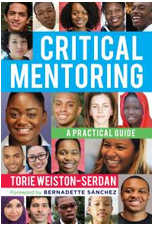 Weiston-Serdan, T. & Sánchez, B. (2023). Critical Mentoring: A Practical Guide. Routledge. Weiston-Serdan, T. & Sánchez, B. (2023). Critical Mentoring: A Practical Guide. Routledge.
Critical mentoring is a method that focuses on fairness, understanding different cultures, and recognizing how people’s identities overlap. Instead of seeing young people as having problems that need fixing, it highlights their strengths and fights against unfair treatment. It values the culture and beliefs of young people of color, giving them the confidence to speak up, take charge, and make their own choices. The book includes helpful tips and ends each chapter with questions and steps to encourage readers to think deeply and take real action for change. |
Picture: Adobe Stock



